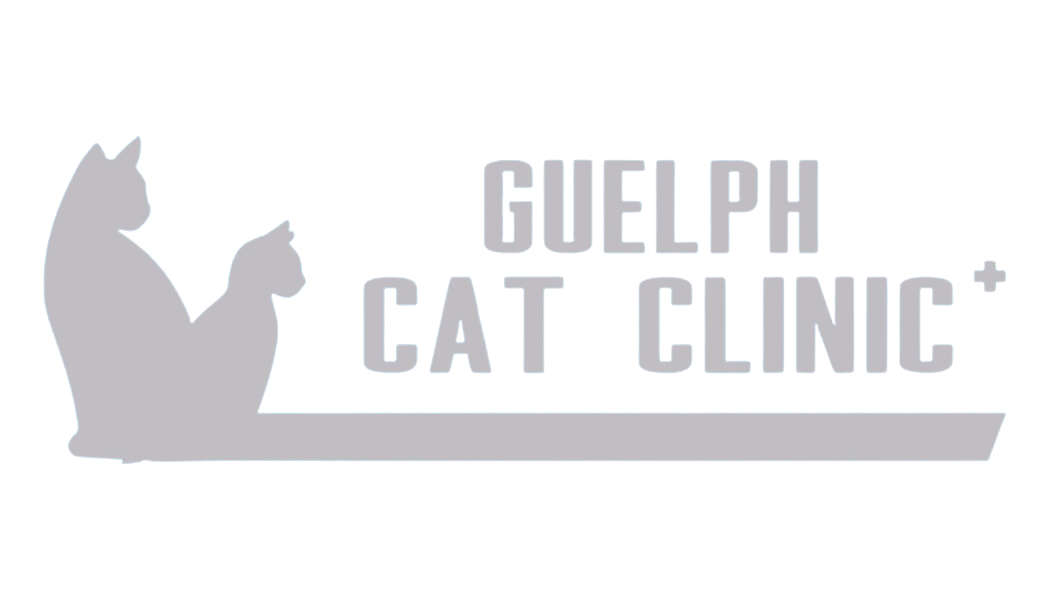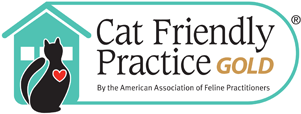The month of February is National Pet Dental Health Month and as February approaches, it is important to understand the importance of oral dental care in our cats. Just as dental care is important component to our own health, feline dental care is also an important component of the good overall health in our cats and ensures a good quality of life for our feline friends. In fact, dental disease is considered the most prevalent disease in cats three years of age and older. An estimated four out of every five cats over the age of 3 years already has dental disease and only approximately 10 percent of cats will go through life without experiencing a dental problem.
Dental Disease in Our Cats
Adult cats have 30 permanent teeth and when these teeth are neglected, dental disease can develop. This occurs when bacteria grow in the mouth and a plaque film forms on the teeth. Over time, this film on the teeth mineralizes and calcifies into tartar. The bacterial population in the mouth accumulates, which leads to inflammation of the gums and results in dental disease. Bacteria from the mouth can then travel to other parts of the body, leading to other diseases in the body such as kidney or heart disease.
Signs of Dental Disease in Our Cats
Here are the signs we can look for in our cats to tell us there is dental disease in the mouth:
- Bad breath
- Red and swollen gums
- Chewing with one side of the mouth
- Pawing or rubbing of the face and mouth
- Drooling
- Bleeding from the gums
- Difficulty chewing.
Often our cats do not actually show us any of these signs because of a defence mechanism all cats are born with. That’s why it is important that our cats receive regular dental check-ups by a Guelph Veterinarian to look for other signs of dental disease.
How to Prevent Dental Disease in Our Cats
The best way to achieve a healthy mouth for our feline friends is very much similar to our own dental practices. The key to good oral care in our cats starts with at-home dental care and regular oral exams with your Guelph Veterinarian. Good feline dental care consists of:
1). Teeth brushing
The most effective way for controlling the build up of plaque in our cat’s mouths is through brushing the teeth. Once daily brushing just as we do is the most successful at controlling the build-up of plaque. Ensure to use toothpaste designed for pets, since human toothpaste may upset our cat’s tummy when swallowed. Remember that it may take some time to accustom our feline friends to accept tooth brushing. Start by first rubbing their gums with your fingers and then slowly introducing a tooth brush.
2). Dental Diets
Using a dental diet can also help reduce plaque in our cat’s mouth. Dental diets usually consist of kibble that when chewed by the cat, provides an abrasive effect which helps remove plaque from the teeth. Some of the dental diets that Guelph Veterinarians recommend include the Hills T/D and the Royal Canin Dental Diet.3.) Water Additives
Water additives aide in reducing the plaque build up in the mouths of our feline friends when added to their water source. Water additives therefore, help in preventing dental disease. Healthy mouth is an example of a water additive that Guelph Veterinarians recommend.
4.) Professional Dental Cleanings
Just as we visit the dentist for regular oral exams and dental cleanings every year, it is also important that our feline friends receive regular oral exams with their annual checkup. Some may need professional dental cleanings by your Guelph Veterinarian. Unlike our own dental cleanings, cats must be anesthetized. The professional cleaning involves scaling the teeth to remove tartar build-up, polishing the teeth to smooth down any grooves on the tooth that might be left behind after the tartar is removed and dental radiographs to examine the teeth below the gum line. If there is evidence of extensive dental disease, diseased teeth may need to be extracted during the professional dental cleaning.
It is important to remember that when it comes to your cat’s health, maintaining healthy teeth and gums is important. Dr. Maggs and the staff of the Guelph Cat Clinic, your Guelph Veterinarian for cats, would like to remind everyone that even though, February is National Pet Dental Health Month, it is important to practice good oral hygiene in our feline friends all year around!


